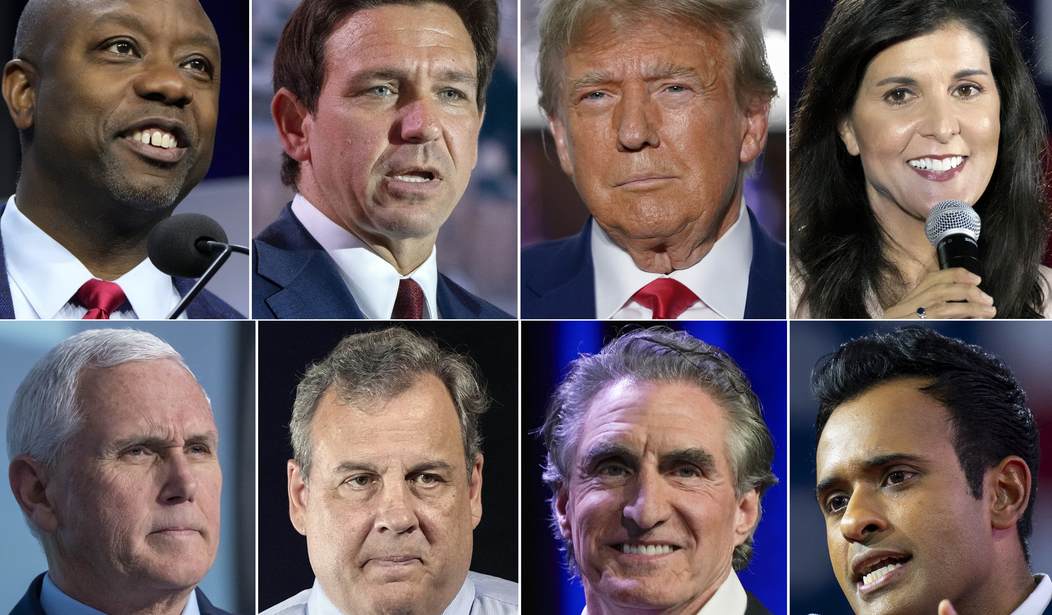The only candidates who will be on the next GOP primary debate stage will be those who garner at least 4% in two national polls and have a minimum of 70,000 individual donors from 20 states. That’s it — that’s the standard. It would seem only three of the original eight (nine if you include Donald Trump, who will not be participating again) remain.
That leaves Nikki Haley, Chris Christie, and Ron DeSantis standing. Some have lamented that the debate will be “boring,” but I disagree. With fewer candidates, we can allocate more time per speaker which, from a voter perspective, gives more policy details. We can all know where they stand on immigration, foreign policy, and taxes by doing a quick internet search. What we have to see on the debate stage is how they defend their position when challenged, think on their feet, and agree and disagree with each other. This is a chance to show maturity, something the GOP has been desperately lacking for more years than I’d care to think about.
As voters, we understand there are a few primary objectives our 47th president must not waver on:
- Securing the border
- National security
- Defending Israel
- Fiscal responsibility.
There are some peripheral areas that also need steadfast leadership:
- Navigating foreign policy with China, Iran, Russia, and North Korea
- Removing red tape that restricts American research and development (see above, China)
- Energy security (see above, Iran and Russia)
- Partnering with Mexico and other Central and South American countries to reign in cartel activity.
These are the hard questions to which we need real answers in Miami on November 8. Republicans, independents, and undecideds must have high expectations for the three candidates on the stage, as well as Hugh Hewitt and Lester Holt as hosts.
Governorships are the proving grounds for presidential candidates, and rightly so. Governors are responsible for budgets and taxes, corporate relations, forging and maintaining effective bipartisan environments, and pushing a voter-approved agenda. Nikki Haley served as the governor of South Carolina for two terms, from 2011 to 2017. Under her governance, the Palmetto State saw 58,000 new jobs, pension reform, small business tax relief, and Medicaid reform.
As the daughter of immigrants, Haley has a unique perspective and a record of immigration reform. Her husband is a combat veteran, and as an active duty military spouse looking at the VA on the retirement horizon, that point of view is exceptionally valuable. From the National Governors Association:
Haley brought together leaders of both political parties, educators and the business community to pass landmark education reforms. Transparency and accountability in state government were priorities for Haley.
Chris Christie, also a two-term governor, served dyed-in-the-wool blue New Jersey from 2010 to 2018. He was tough on crime as a U.S. Attorney, going after white-collar crimes in and out of the political space, cartel vigilantes engaged in human and drug trafficking, and even environmental offenses. He and his wife have four children, so if anyone wants to lament the fiscal future of “our children and grandchildren,” he has a sympathetic ear. Again, from the NGA:
Christie’s administration focused on fiscal responsibility, job creation, pension and health benefits reform and education reform.
Ron DeSantis, just elected for his second term as governor of the State of Florida, differs from Haley and Christie in that Florida is a swing state; South Carolina, outside of the 2016 Presidential election when it went for Hillary, is thoroughly Republican, and New Jersey made an exception for Christie, a Republican, to its Democrats-only mentality.
DeSantis was in a position of power during the COVID-19 pandemic, which extended beyond mask and vaccine mandates into waves of internal migration (Americans moving to Florida from other U.S. locations) that put a strain on property availability, business expansion, and tax fluctuations. Lastly, Florida has an immigration problem that South Carolina and New Jersey don’t have; it would be worth asking if Haley or Christie would bus illegal immigrants to sanctuary cities.
If anyone is surprised that Asa “Too Genteel” Hutchinson, Doug “Who?” Burgum, or Mike “Wet Firecracker” Pence have not qualified, I would also like to inform you, and this may come as a disappointment, that water is wet. As for Vivek Ramaswamy and Tim Scott, it’s a shrug from me.
Hutchinson’s credentials qualify him to run for office. He was appointed by President Reagan as U.S. Attorney, served as the governor of Arkansas, and served in Congress. While everyone was talking over each other and the timer, Hutchinson sat patiently waiting for his turn. I have worked with him in the past as a Right On Crime signatory and can attest that Asa Hutchinson is a gentleman, diplomat, and statesman. If you’re looking for someone to go toe-to-toe with Donald Trump’s personality, it is not Hutchinson.
Burgum should have been savvy enough to hire political consultants who would tell him he has absolutely no business running for nationwide office. Not only does he not have name recognition, but his donor pool is also not deep or wide enough to cover the costs of campaigning. Between a lack of press, grassroots, and donors, it should have been obvious that Burgum had about as much of a chance of winning as an icicle has of crossing the Sahara.
There’s a chance all of those things could happen, and Burgum decided to give it a go anyway to elevate his name ID, not an uncommon tactic, especially if one is vying for a cabinet position. The problem is that it didn’t work. He still has no name recognition, and for those who know the name, it is now tied with toddler-esque foot stomping at the second debate.
Vice President Pence is someone with whom I have also worked, this time as a podcaster when he was the governor of Indiana. He is also a gentleman, and juxtaposed with Donald Trump for four years, his faith and demeanor have, sadly, become his public anchor: keeping him grounded, weighed down, and in place.
January 6 was always working against him in the MAGA crowd, and those who are less interested in the Liz Cheney insurrection back-and-forth already knew what they were getting with Pence. I call him the “wet firecracker” because that’s a phrase I use for something that ends up being a massive disappointment. Pence’s presidential campaign was a monumental disappointment, even if only to his campaign staff.
Tim Scott (you guessed it, I’ve interviewed him, too) is smart, savvy about policy, and likable. Vivek Ramaswamy (sat next to him at a private dinner event in the spring of ’22) is a mixed bag: he is a dynamic people person but likes to be put together and polished. While Vivek publicly mulls “whether he’ll participate in the next debate,” the line plays about as well as any saving face line does; that is, we all see it for what it is. Tim, Vivek, take it from me: it’s okay to call it. It’s not fun, but neither is suffering through the media slog. Y’all might as well keep yourselves as unscathed as possible and gear up to support whoever the nominee is.
What do you think? What positions would make or break your support?










